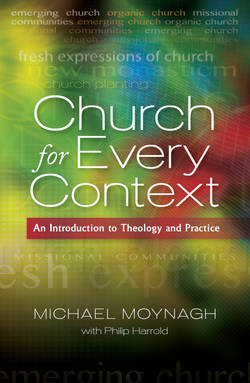Читать книгу Church for Every Context - Michael Moynagh - Страница 95
На сайте Литреса книга снята с продажи.
An ethical turn
ОглавлениеA second turn is influencing society. This is ‘a turn away from life lived in terms of external or “objective” roles, duties and obligations, and a turn towards life lived by reference to one’s own subjective experiences’ – a life that may be relational as much as individualistic (Heelas and Woodhead, 2005, p. 2). Individuals pay less attention to divine authority and more attention to their subjective states. Their own needs, desires, capabilities and relationships have become their prime frame of reference.
Charles Taylor has described how following the late eighteenth-century Romantics, the ethic of personal fulfilment was restricted to the intellectual and artistic elites. For most people, personal fulfilment was constrained by the demands of sexual morality and the values of work and productivity. During the 1960s, however, this ethic leapt out of these constraints and became an overriding goal. ‘What is new is that this kind of self-orientation seems to have become a mass phenomenon’ (Taylor, 2007, p. 473).
This represents more than an intensified search for pleasure. It is a new understanding of the good: people have their own ways of realizing their humanity. Each person must live out what is true to them. Rather than having to conform to a model imposed by society, the previous generation, religion or political authority, individuals must be given the opportunity to express their authentic selves, provided they do not harm anyone else.
Ronald Inglehart has spent a lifetime arguing that when economies advance, ‘materialist’ values based on meeting physical security, sustenance, shelter and other needs give way to ‘post-materialist’, quality-of-life values. Recently, however, he has argued that post-materialist values ‘are just one indicator of a much broader cultural shift from survival values to self-expression values’. The latter are changing attitudes to gender roles, sexual orientation, work, religion and child-rearing (Inglehart, 2008, p. 142). This represents a profound ethical turn: the expressive rather than dutiful self dominates society – and increasingly the church.
